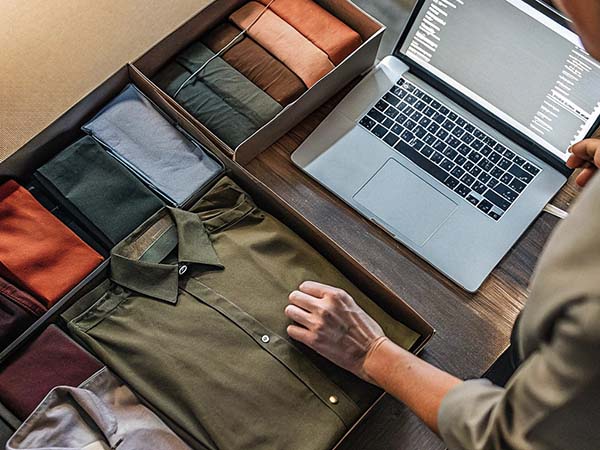Whether you’re launching a clothing brand or need bulk t-shirts for your business, finding a reliable t-shirt supplier is crucial. The right supplier ensures consistent quality, timely deliveries, and competitive pricing—factors that can make or break your business.
To find a good t-shirt supplier, research reliable t-shirt manufacturers1, attend trade shows, request samples, and compare pricing, quality, and low MOQs2. A strong supplier should offer reliability, customization options, and fair pricing.
In this guide, we’ll explore the key steps to finding a trustworthy t-shirt supplier and how to evaluate them effectively.

Where Can You Find T-Shirt Suppliers?
There are several ways to source a reliable t-shirt supplier, depending on your business needs and location.
1. Online Supplier Directories
Several online platforms connect businesses with suppliers. These directories allow you to compare different manufacturers, check reviews, and request samples.
Best Platforms:
- Alibaba – Global directory for bulk orders with customization options.
- Made-in-China – A popular alternative for sourcing t-shirts from Chinese manufacturers.
- Printful & Printify – Best for print-on-demand services.
- ThomasNet – Ideal for U.S.-based manufacturers.
Tip: Look for suppliers with high ratings, verified certifications, and positive customer reviews. Check best practices for requesting t-shirt samples3 to ensure product consistency.
2. Trade Shows and Expos
Attending trade shows allows you to meet suppliers in person, check the quality of their products, and discuss pricing.
Best Trade Shows for T-Shirt Suppliers:
- MAGIC Las Vegas (USA) – A major event for apparel and textile sourcing.
- Canton Fair (China) – One of the largest trade fairs for clothing manufacturers.
- Texworld (Europe & USA) – Focuses on fabric and apparel sourcing.
Tip: Learn how to attend apparel trade shows effectively4 by preparing a list of questions and business requirements before the event.

3. Google and Social Media
A simple Google search like “wholesale t-shirt suppliers” or “custom t-shirt manufacturers” can help you discover companies with strong reputations.
Social Media Platforms:
- LinkedIn – Connect with verified apparel manufacturers.
- Instagram & Facebook – Many t-shirt factories showcase their designs and client testimonials.
Tip: Always check a supplier’s website, client testimonials, and industry experience before committing.
4. Local vs. International Suppliers
Choosing between local and overseas suppliers depends on your priorities.
| Factor | Local Suppliers | Overseas Suppliers |
|---|---|---|
| Lead Time | Faster | Longer shipping times |
| Cost | Higher prices | Lower production costs |
| Customization | More flexible | May have bulk requirements |
| Communication | Easier | Time zone differences |
Tip: If you need quick turnarounds, local suppliers are ideal. For lower costs, overseas suppliers may be a better option.
How to Evaluate a T-Shirt Supplier?
Once you’ve found potential suppliers, evaluating them is essential to ensure they meet your business requirements.

1. Check Fabric Quality
The quality of the t-shirts impacts your brand’s reputation. Request samples to assess factors such as:
- Fabric Type: Cotton, polyester, or blends?
- GSM (Grams per Square Meter): Determines thickness and durability.
- Shrinkage & Color Retention: Does the t-shirt hold up after washing?
2. Minimum Order Quantities (MOQs)
Every supplier has an MOQ, which refers to the minimum number of t-shirts you must order per batch.
- Small MOQs (50-100 pieces): Ideal for startups and small brands.
- Large MOQs (500+ pieces): More cost-effective for established businesses.
Tip: Consider low MOQs2 if you’re testing a new supplier or have limited budget.
3. Customization and Printing Options
If you’re selling branded t-shirts, ensure the supplier offers customization options such as:
- Screen Printing: Best for bulk orders with long-lasting prints.
- DTG (Direct-to-Garment): Ideal for small orders with complex designs.
- Embroidery: Adds a premium look to t-shirts.
4. Pricing and Payment Terms
Compare pricing across multiple suppliers while considering factors like:
- Bulk Discounts: Many suppliers offer lower prices for larger orders.
- Hidden Fees: Check for setup fees or shipping charges.
- Payment Terms: Some require full payment upfront, while others offer installment plans.
5. Lead Time and Shipping Costs
Delivery time is crucial, especially if you have tight deadlines.
- Domestic Suppliers: Shorter lead times (1-2 weeks).
- Overseas Suppliers: Longer lead times (3-6 weeks), depending on shipping methods.
6. Supplier Reputation and Reviews
A good supplier should have a proven track record of reliability.
- Check Reviews: Look for feedback on quality, communication, and delivery times.
- Ask for References: A trustworthy supplier should provide references from past clients.
Common Mistakes to Avoid When Choosing a T-Shirt Supplier
To ensure a smooth sourcing process, avoid these common mistakes:
- Not Requesting Samples: Always test product quality before placing a bulk order.
- Ignoring Hidden Fees: Factor in shipping, taxes, and customization costs.
- Choosing the Cheapest Option: Low prices can mean low quality—find a balance between cost and quality.
- Not Checking Customer Service: A supplier with poor communication can cause issues with orders and deadlines.
- Skipping Contracts: Always have a written agreement outlining pricing, payment terms, and delivery schedules.
Best T-Shirt Suppliers for Different Needs
Best for Custom Printing:
- Printful (USA & Europe)
- Printify (Global)
- Apliiq (USA)
Best for Wholesale Orders:
- Bella+Canvas (USA)
- Gildan (Canada)
- Next Level Apparel (USA)
Best for Sustainable T-Shirts:
- Stanley/Stella (Europe)
- Allmade (USA)
- AS Colour (Australia)
Best for Low MOQs:
- T-Shirt Express (USA)
- Vistaprint (Global)
- Custom Ink (USA)
Tip: Selecting sustainable fabric options in activewear4 or general apparel can also enhance your brand image.
Conclusion
Finding a good t-shirt supplier involves research, quality checks, and strong communication. Whether sourcing locally or internationally, the right supplier should offer high-quality products, reasonable pricing, and reliable delivery. By evaluating factors like fabric quality, customization options, and supplier reputation, you can confidently choose a partner that supports your business growth.
-
Exploring criteria helps identify suppliers with consistent quality and on-time deliveries. ↩
-
Investigating small-order suppliers supports small businesses and new brands testing products. ↩ ↩
-
Evaluating fabric, print quality, and overall workmanship ensures brand consistency. ↩
-
Exploring eco-friendly materials fosters responsible and environmentally conscious sportswear. ↩ ↩













